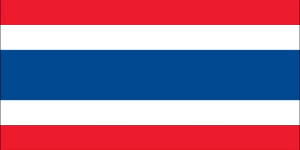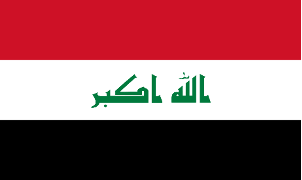November 14, 2020
Dear friends,
CANVAS is pleased to bring you another weekly report! This week covers police brutality in Thailand, closures of displacement camps in Iraq, sanctions on Iran, protests in Sudan, as well as other news!
Conflict Update
This week, a link between a recent mass shooting in a Nice church in France has been tied to the beheading of a schoolteacher two weeks prior.
Russian troops have been deployed to the Nagorno-Karabakh region following a peace deal with Armenia and Azerbaijan, which have been mired in conflict since July 2020.
Post-election violence following the win of controversial president Alassane Ouattara in the Ivory Coast between ethnic groups has come to a lull after a month of fighting.
Indian and Pakistani troops exchanged fire along the Line of Control, with both officers of both countries accused of firing at civilians.
Coronavirus [UPDATE]
This week in the United States, the state of California hit 1 million total COVID-19 cases, placing it with the second highest number of infections of any state in the country, just after Texas. In recent weeks, Iran’s coronavirus infection rate has skyrocketed, bringing the country to a death count of 40,000. Italy has measured more than 40,000 coronavirus infections and 550 deaths in 24 hours. A new study has shown that ethnic minorities in both the US and UK have a greater risk of infection than white people. This may be due to the higher employment rates of ethnic minorities as essential workers and lower socioeconomic status.

The United States
Lawyers for the presidential campaign of incumbent Donald Trump have dropped a lawsuit in Arizona, in which the president made claims of voter fraud. This comes after a projected loss to Democrat Joe Biden, who has won the state. Pundits believe Trump may face prosecution once he leaves office, as he is currently under a pending grand jury investigation by a district attorney in New York into his businesses and taxes. The US Constitution states that a sitting president may not be subpoenaed, however once the president leaves office the subpoena, if granted, will allow him to be charged in state courts.
Lawyers for the presidential campaign of incumbent Donald Trump have dropped a lawsuit in Arizona, in which the president made claims of voter fraud. This comes after a projected loss to Democrat Joe Biden, who has won the state. Pundits believe Trump may face prosecution once he leaves office, as he is currently under a pending grand jury investigation by a district attorney in New York into his businesses and taxes. The US Constitution states that a sitting president may not be subpoenaed, however once the president leaves office the subpoena, if granted, will allow him to be charged in state courts.

China
US president Donald Trump signed an executive order this week that dictates no American should invest in Chinese military firms. The White House claims that these military firms are owned by the Chinese government. This caused shares to drop for multiple companies on the New York Stock Exchange, such as China Telecom. The automaker company Volkswagon has defended its decision to keep an operating car manufacturing plant in Xinjiang, amid allegations that Uighur Muslims are being detained and forced to work in factories or labor camps. The company claims they have no ties to this practice and control their hiring process; however, critics state the company has a moral obligation to not be tied to such practices given their history in the Nazi party and their historic use of forced labor.

Hong Kong
The central Chinese government removed four opposition lawmakers from the Hong Kong Legislative Council on Wednesday, dealing a devastating blow to political freedom in the city. The U.S. was quick to condemn the action as a “flagrantly violation” of “its commitments to Hong Kong,” and the E.U. voted unanimously in favor of a resolution calling for the “immediate reinstatement of the Legislative Council members” on Thursday. 15 of the remaining opposition members of the LegCo have responded by resigning en masse, leading many to fear that democracy in the city is all but over. China has rebuked the walkout as an “open challenge to its authority.”

Zimbabwe
Since the beginning of the academic year, Zimbabwean teachers have been on strike over their low pay and insufficient school safety measures in the wake of COVID-19. This week, the government voted to double teachers salaries to about US$180 per month in an effort to bring educators back to schools; teachers’ unions rejected the salary increase, arguing that the new figure was still far below the poverty line (~US$540 per month) and thus did not meet their demands. Separately, prominent government critic Hopewell Chin’ono has been denied bail while facing charges of obstruction of justice. Chin’ono claims that the charges are false and he is “being persecuted for exposing corruption in [the] government.”

Indonesia
Indonesian officials will meet with high-level executives of the U.S. automaker Tesla next week in order to become the world’s largest producer of electric batteries. This meeting is supposedly a part of the country’s new omnibus bill, which faces criticism for the removal of worker and environmental protections. Additionally, the president has stated the country will begin a mass COVID-19 vaccination effort later this year after final trails of the vaccine have been run. Politicians in Indonesia are deliberating a ban on alcohol. An alcohol-prohibition bill was first introduced in 2015, and though it was not passed the possibility has prompted protests from tourist destinations, producers and some community leaders.

Thailand
In a demonstration on Sunday, pro-democracy protestors trying to deliver letters of their grievances to the Thai monarch were blasted with water cannons by police forces. No one suffered serious injuries, however the protest was largely nonviolent and did not warrant the use of police force. Earlier this year, an American tourist posted a negative review of a Thai hotel on the website TripAdvisor and was arrested in September for defamation, prompting TripAdvisor to put a warning on the page of the hotel.

Iraq
International bodies such as the Norwegian Refugee Council have criticized the Iraqi government’s decision to continue closures of displacement camps in seven provinces on short notice, despite the coming winter and COVID-19 pandemic. The government expects that the estimated 100k people who will be left homeless by these closures will “return to their areas of origin.” At the same time, the government has been dealing with a wave of protests across the country. Hundreds of civil servants have taken to the streets in multiple cities to express anger over their salaries being delayed, while others have protested outside of the U.S. Embassy in Baghdad to demand the immediate withdrawal of U.S. troops from the country. In Basra, Iraqi forces opened fire on protesters, wounding 40 and killing the first protester since May.

Iran
The International Atomic Energy Agency, a UN watchdog on the possession of global powers of nuclear energy, has stated that Iran has an enriched uranium stockpile of nearly twelve times the amount permitted underneath the 2015 nuclear arms programme. The organization will continue to monitor the country for any other dangers or infractions. In other news, the United States has imposed more sanctions on six companies and four people for supplying good to military organizations in Iran.

Nicaragua
Nicaragua is still reeling from the devastation of Hurricane Eta, which left hundreds of residents homeless. Spain’s Agency for International Development Cooperation has committed to sending 150k euros of humanitarian aid to the battered country. Meanwhile, Nicaragua’s parliament voted Tuesday to approve a much-criticized amendment to the constitution that allows perpetrators of hate crimes to receive life sentences in prison. Since “crimes motivated by hate against the government” fall under this categorization, human rights groups have criticized the amendment, arguing that it will be weaponized against opponents of President Ortega’s regime.

Sudan
Protests popped up across Sudan this past weekend. Workers in Port Sudan went on a three-day strike as others protested and held vigils to express their dismay at increased electricity prices in the Red Sea state; residents of Kordofan demonstrated against a fuel shortage that has led to a “transportation crisis;” and Ethiopians in Khartoum protested a decision by the UNHCR office to change their status from “refugees” to “asylum seekers.” The biggest news of the week, though, is the flood of Ethiopian refugees into Sudan. According to the UN, an estimated 11,000 Ethiopians have fled to Sudan following a deadly military campaign by the Ethiopian government in the Tigray region. As a result, Sudan has partially closed its border with the embattled country.

Bolivia
Luis Arce, the president-elect of Bolivia was inaugurated on Sunday in a ceremony at a pre-Incan site of Tiwanaku. Some speculate he may face This week, former Bolivian president and Movement Towards Socialism Party (MAS) leader Evo Morales returned to the country, from which he was exiled after a military coup ousted him from office in 2019. Morales was residing in Argentina.

Belarus
Amnesty International has reported that over 1,000 peaceful protesters were detained in a single day across Belarus last weekend. International tensions continue to run high: the U.K. government reported that Belarus had expelled two of their diplomats for “legitimately observing protests” and decided to expel two Belarusian diplomats in response. Separately, Belarus’ Astravyets nuclear power plant halted operation within a day of opening after several transformers exploded. The incident worsened pre-existing safety concerns voiced by the neighboring country of Lithuania, whose capital is just 25 miles (40 km) away from the Astravyets plant.